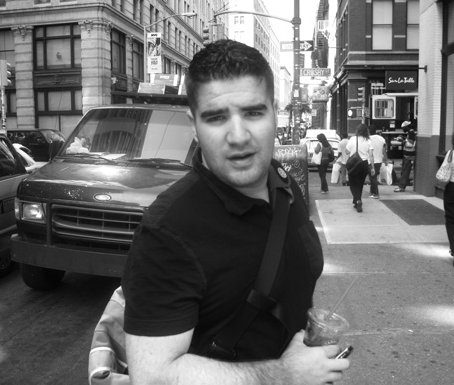 Ben Kaufman is known as the guy behind Mophie, the Burlington, Vermont-based iPhone accessory maker that claimed $1 million in revenue in 2006.
Ben Kaufman is known as the guy behind Mophie, the Burlington, Vermont-based iPhone accessory maker that claimed $1 million in revenue in 2006.
But as he learned more and more from firsthand visits to outsourced manufacturers in China, Kaufman realized that he didn’t have to design the products himself. Instead, he told Inc. magazine in 2007, he planned to “turn Mophie into a community-based product-development company” that let anyone submit a design. Winning designs would be built by Kaufman’s outsourced network.
Instead, Kaufman sold Mophie and founded Quirky. A few days ago, Quirky closed a $6 million A round of funding led by RRE Ventures. Village Ventures, Lowercase Capital and Contour Venture Partners also pitched in. That brings total funding to around $7.5 million.
Quirky, founded a year ago and headquartered in New York City, does what it calls social product development. Aspiring product designers pay $99 per idea to submit their product designs for group evaluation. Quirky maintains a community of people who are paid to influence product designs. Those who do get a cut of eventual sales. The $99 fee guarantees that “it’s either going to get your product developed, or you’ll get a 45-page stack from us explaining what type of people like your product.”
Once a week, Quirky chooses an unbuilt product to design and to offer for presale. They figure out how to get it built, and how much to sell it for. If enough people pre-order on Quirky’s website to turn a profit, the thing gets built and goes on sale.
If Quirky decides to build, say, your modular kitchen spatula, you must assign your intellectual property to the company. In exchange, you get a cut of revenue.
Eventually, if everything works out, your product goes on sale with Quirky as both a retailer and a distributor. Fixed portions of sales revenue are split among inventors, Quirky, and its community of influencers. One prolific influencer has earned $1,500 already.
The company has built and sold gadgets ranging from rain water collector, to a portable nightlight for children, to a luggage tag that weighs the suitcase to see if it fits carry-on restrictions. Because of the Mophie connection, Kaufman gets lots of submissions for Apple accessories. “The iPad case we launched last week is killing it,” he told me in a phone interview.
Some inventors might balk at paying to submit an idea, or at handing over their intellectual property to Quirky. “Mainly the reason behind the $99 is it’s a psychological barrier,” Kaufman told me. “You have to ask if you’re serious about building a time machine.”
Currently, he said, “1 in about 35 ideas right now gets designed. Of the 1 in 35, about 25 to 30 percent of them meet the presale threshold.”
The new funding will go toward hiring more staff, setting up model shops for new products, and getting international distribution for the finished products put into place.
Kaufman’s strength seems to be his willingness to let others be the star designers and inventors. “When you drill down to what this business is,” he said, “it’s an operational powerhouse.”
VentureBeat's mission is to be a digital town square for technical decision-makers to gain knowledge about transformative enterprise technology and transact. Learn More
